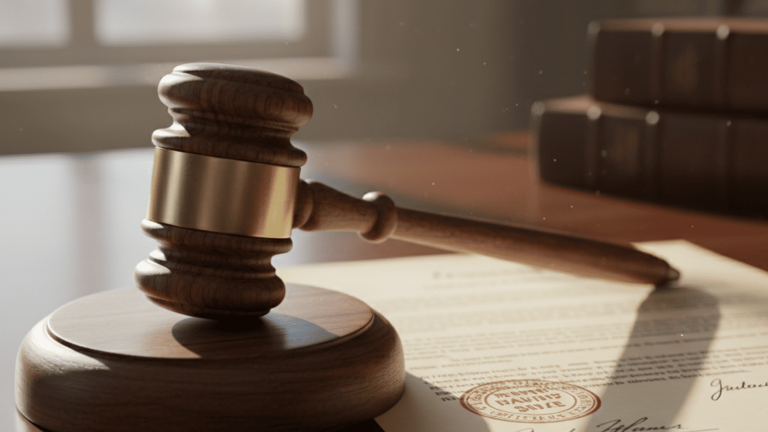Quick answer: when the named executor doesn’t follow the will, beneficiaries and heirs have tools to force accountability, from demanding an accounting to asking the probate court to remove the executor and appoint someone else.
The probate court exists precisely to protect the decedent’s wishes, pay debts, and make sure estate assets reach the right people.
What the executor’s job actually is
The executor (also called the personal representative) has a legal, fiduciary duty to act in the best interests of the estate and the beneficiaries. Typical duties include locating the original will, filing it with the county probate court, gathering assets, notifying creditors, paying valid debts and taxes, and distributing remaining estate assets according to the last will and testament. The moment an executor does not follow those duties, whether by delay, hiding documents, mismanaging funds, or outright theft, they expose themselves to legal consequences.
Why following the will matters
A will isn’t just a preference list, once admitted to probate, it gives the court a roadmap for distributing the decedent’s estate. If the executor ignores the will’s terms, creditors may not get notice, taxes can go unpaid, property can be mis-sold, and heirs can lose their rightful share. The probate process exists to prevent those harms and to provide remedies when things go wrong.
Common ways an executor fails to follow the will
- Failing to file the will or open probate (failing to file).
- Delaying administration so checks clear or debts go unpaid.
- Misappropriating estate assets (taking property or cash).
- Refusing to provide accountings or hiding bank records.
- Selling estate property without court approval or in a way that harms beneficiaries.
When one of these happens, beneficiaries should act fast; statutory deadlines and local probate rules matter.
What beneficiaries and heirs can do (practical legal steps)
- Ask for documentation and an accounting. Start by requesting the executor produce receipts, bank statements, an inventory of estate assets, and copies of probate filings. Courts expect an executor to provide regular accountings.
- File a petition with the probate court. If the executor refuses or the documents look wrong, an interested party (beneficiary or heir) can file a petition in probate court to compel the executor to act, produce an accounting, or turn over the original will. The probate judge can then schedule a hearing.
- Move to remove the executor. The court can remove an executor who breaches fiduciary duty, is incompetent, or mismanages assets, and appoint an administrator or successor executor. Removal is a common remedy when an executor fails to perform.
- Seek surcharges and restitution. If the executor’s misconduct caused financial loss, the court can surcharge the executor, an order requiring repayment to the estate
- File creditor or beneficiary claims. Creditors or beneficiaries can file claims against the estate if debts were ignored and assets wrongfully dissipated. These claims are processed during probate proceedings.
Timing is critical. Don’t wait
Different states set different deadlines for lodging a will and opening probate. In some states the custodian must lodge the will within days; in others the executor has months or years to petition. Missing statutory timelines can complicate remedies and may even allow others to step in. If you suspect the executor is not acting, initiate a court petition promptly so the judge can protect estate assets.
When a will is disputed or contested
If someone alleges the will itself is invalid (for reasons such as undue influence, lack of capacity, fraud, or improper execution) the dispute becomes a will contest. That’s litigation within the probate case: pleadings, discovery, witness testimony, and often mediation. Courts look for legal grounds — simple displeasure with an outcome is not enough. If the will is set aside, an earlier will or intestacy rules apply.
If the named executor simply refuses or disappears
The probate system anticipates this. If the named executor refuses to serve or disappears, the court can appoint an administrator of the estate (a court-appointed personal representative) to take over duties. That keeps the estate from stalling while the judge protects creditors and heirs.
Real-world checklist for beneficiaries (step-by-step)
- Get several certified copies of the death certificate.
- Locate the original will (or confirm it was lodged with the county).
- Request an inventory and accounting from the executor in writing.
- Preserve emails, texts, bank statements, photographs of property, and any receipts.
- Consult an experienced probate attorney quickly; they can file a petition to compel records or seek immediate temporary relief (like freezing suspect accounts).
How to prevent this before it happens
- Choose an executor who is organized and trustworthy.
- Leave clear, legible instructions or write a short letter of explanation to reduce fights.
- Use trusts and joint ownership where appropriate to reduce the need for probate.
- Keep the original will in a known, secure place and tell a trusted person where it is. Proper planning reduces the odds an executor mishandles the estate.
Legal Consequences When an Executor Disregards the Will
An executor may face penalties if they ignore the wishes of the deceased. Any beneficiary can petition the court, or file a more formal petition the probate court, to compel action, freeze accounts, or ask the court to have the executor suspended. If misconduct is proven, the judge can order the executor removed and appoint a neutral personal representative.
Consequences go beyond removal. The legal process allows the court to surcharge misused personal property and other estate assets, force payment of outstanding debts, and award damages to harmed heirs.
Final thoughts
When a will isn’t followed after death, the probate court and statutory remedies exist to enforce the decedent’s wishes, protect creditors, and make the executor accountable. Beneficiaries should document concerns, act promptly, and involve a probate lawyer when necessary; courts routinely remove or surcharge executors who ignore their duties, and criminal penalties can apply in theft cases. If you’re in Austin (or anywhere in Texas) and suspect an executor isn’t following the will, reach out to a local probate attorney to review the facts and file the right petition in the probate court in the county where the decedent lived.
Frequently asked questions
Yes. Anyone in possession of the original will can be petitioned to deliver it to the probate clerk; the court can compel delivery and sanction obstruction.
Potentially yes. A court can remove an executor, order repayment (surcharge), and in criminal cases refer for prosecution. Beneficiaries can sue for breach of fiduciary duty.
The court can compel an accounting, set deadlines, or replace the executor if delay harms the estate or beneficiaries. Prompt petitions are the right move.
Often heirs negotiate a settlement or agree to have the executor step down, but any settlement distributing estate assets typically requires court approval in probate to protect creditors and ensure legality.





